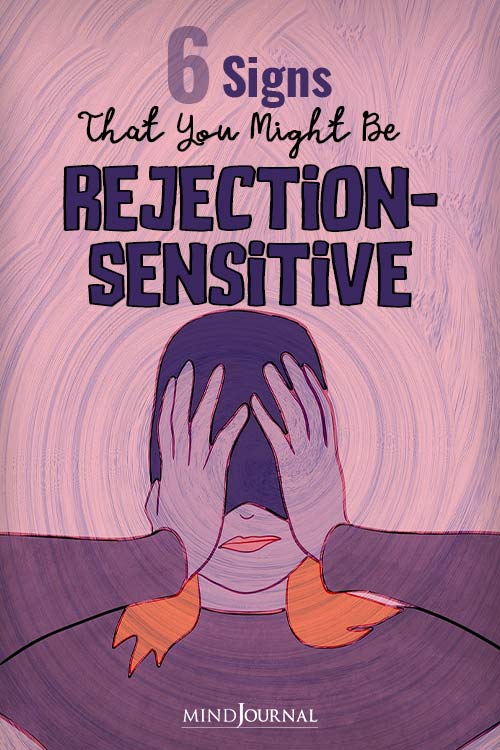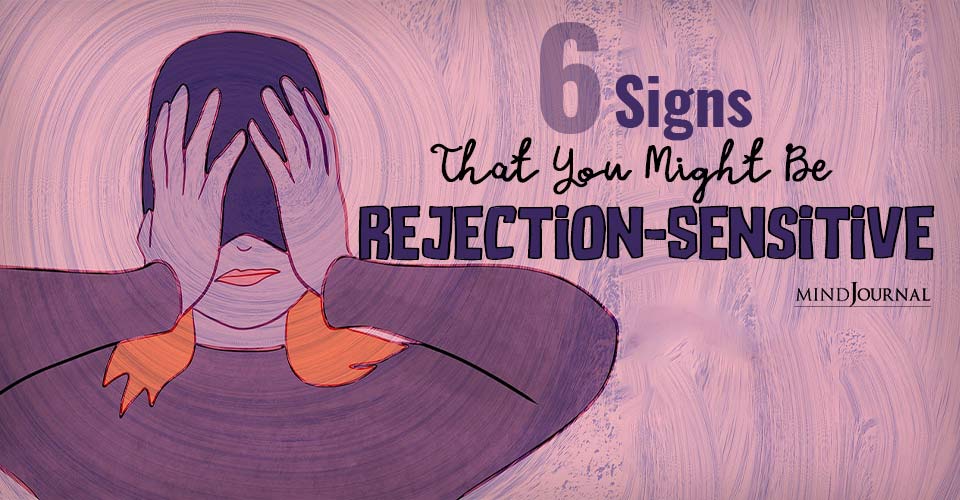“Rejection sensitivity is hard to understand. Often, people can’t find the words to describe its pain. They say it’s intense, awful, terrible, overwhelming. It’s always triggered by the perceived or real loss of approval, love, or respect.” – Unknown
Key Points:
- You may experience sensitivity to rejection in different areas of your life.
- There are six common reactions to rejection sensitivity.
- Developing compassionate self-awareness for your rejection sensitivity can help you feel emotionally stronger and become more resilient.
No one likes rejection. Even when you have the wisdom to see that it provides an opportunity for growth, you won’t like being rejected. But there is a difference between not liking it and feeling devastated by it. Unfortunately, rejection-sensitive people tend to see it everywhere, and for them, the impact is big—making it difficult to near impossible to move past even the smallest rebuff.
Your sensitivity to rejection can differ in the different areas of your life. You might feel capable and resilient at work, but sensitive to rejection in personal relationships—friendships or intimate relationships, or both. Or, you might feel emotionally strong in your personal life, but practically paralyzed by fear of being inadequate at work.
Some professions are breeding grounds for such fears. For instance, entrepreneurs, realtors, and artists of all types must learn to cope effectively with rejection if they want to survive and thrive in their chosen fields.
As I explain in Bouncing Back from Rejection, six common reactions of rejection-sensitive people are:
Related: 8 Little Reminders For People Struggling With Rejection
6 Defining Signs Of Rejection Sensitivity
1. Overreacting
Think about your experiences of rejection and ask yourself, “Do I tend to overreact?” Consider whether you tend to see rejection in ambiguous situations, or you respond to small rejections as monumental ones.
For instance, every time Stan’s supervisor asked to see him, he was sure that he was going to be fired—despite that supervisor giving him frequent positive feedback.
2. Being Unable to Move Forward
One way people overreact is that they ruminate about failing or being rejected. Like water flushing in the toilet, their thinking spirals downward into a dark hole—and they are unable to climb out.

3. Responding with Intense Anger
If you are fearful of rejection, your fear may be accompanied by anger. It’s a way of fighting back the fear or trying to overcome it.
While anger can feel more empowering than fear, anger also keeps you focused on the other person rather than on your inner struggles. You may stir up more trouble in your relationships and never really address or resolve your fears.
Related: 4 Signs Of An Inferiority Complex In Your Body Language
4. Guarding Against Judgment
Many people who struggle with feeling inadequate or unworthy are, not surprisingly, sensitive to rejection. Expecting to be rejected, they naturally guard against being judged by withdrawing socially or being extremely attentive and caring to others.
While they might avoid rejection, they also suffer from feeling alone either because they don’t interact with others or because they feel that friends would not like them if they knew “the real me.”
5. Responding with an “It Doesn’t Bother Me” Attitude
Some people seem totally unphased by what others think. However, for many, this is a case of appearances being deceiving. They don’t want to be upset by judgment or rejection, so they pretend that they don’t care, or they numb themselves to its pain.
But the pain often cannot be contained and is expressed in indirect ways such as feeling depressed or anxious for “no reason” or being defensive in relationships.
6. Being Independent and Self-Sufficient
Extremely self-sufficient people are also more sensitive to judgment than they appear. Though they don’t feel afraid of rejection, this lack of concern is the product of avoiding it.
One consequence of this style of coping with potential rejection is that the person feels emotionally alone. They often don’t even know that they are lonely. Instead, they might be more conscious of boredom or restlessness.
If you recognize any of these traits in yourself, it might be time to start looking more closely at your sensitivity to rejection. Consider the different examples of it in your life. Think about whether there are certain circumstances that seem to elicit it. And reflect back on where you might have learned that you are likely to be rejected. (Learn more about the origins of rejection sensitivity in this brief video.)
Related: Rejection: Why You Must Not Let Others Behavior Affect Your Self Worth
As you get to know your rejection sensitivity better, take care to understand it with caring and concern. By developing compassionate self-awareness of your sensitivity to rejection, you may begin to see rejection from a healthier, more resilient, and less painful, perspective.
To see more from Dr. Becker-Phelps, visit her website and her YouTube Channel. Website link: http://drbecker-phelps.com/home/ YouTube link: youtube.com/c/LeslieBeckerPhelpsPhD
References:
Ph.D., B. L. (2019). Bouncing Back from Rejection: Build the Resilience You Need to Get Back Up When Life Knocks You Down (Illustrated ed.). New Harbinger Publications.
Written By Leslie Becker-Phelps Originally Appeared On Psychology Today
Frequently Asked Questions (FAQs)
What is rejection sensitivity?
Rejection sensitivity is when you are so scared and fearful of rejection, that it ends up impacting your daily life. Constructive criticism is also hard for you to bear.
What is rejection sensitivity disorder?
Rejection sensitivity disorder is a type of disorder where you feel extremely emotionally overwhelmed and disturbed, due to perceived or actual criticism thrown your way.
What is rejection sensitivity dysphoria?
Extreme sensitivity toward any sort of criticism or feeling emotionally overwhelmed when faced with criticism, even if it’s harmless is known as Rejection Sensitivity Dysphoria (RSD)
How to overcome rejection sensitivity?
Some of the best things you can do to overcome rejection sensitivity are practicing positive affirmations, focusing on your strengths, leaning on your close ones for emotional support, understanding that all your emotions are okay and valid, and working on not taking things too seriously or personally.









Leave a Reply
You must be logged in to post a comment.